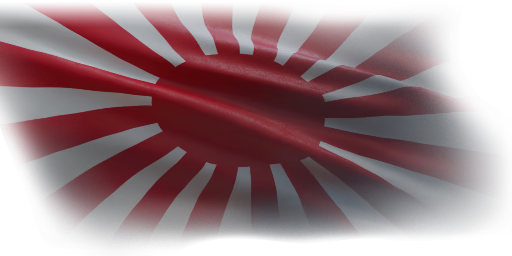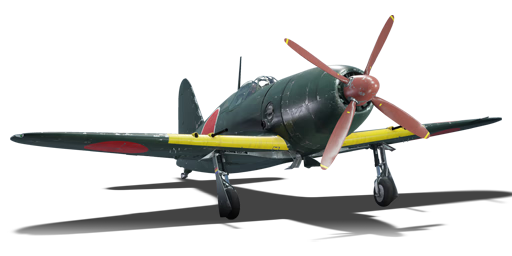


The J2M4 Model 32, designated as Raiden Mod.32 (雷電三二型), was a high-altitude prototype variant of the Raiden series developed to increase the service ceiling and effectiveness at high altitude. It was equipped with a Mitsubishi MK4R-C "Kasei 23C" engine and turbocharger, which lengthened the nose of the plane considerably. With 2 prototypes built, problems with the turbocharger, weight balance, and increased take-off and landing range canceled further development of a Raiden with the Kasei 23C.
It was introduced in Update 1.47 "Big Guns" as a premium vehicle purchasable in-game with Golden Eagles, but was removed from in-game sale after the 9th Anniversary Sale. It has since been made available temporarily for purchase in-game with Golden Eagles during the 2022 "Day of Japan" and 2023 "National Foundation Day in Japan" mini-events. Similar to its replacing variant, the J2M5, the J2M4 boosts its performance over its earlier predecessors by boasting a 1,854 hp engine on top of equipping a turbocharger increasing its efficiency at high altitudes.
flaps
flaps
flaps
brake
| Belt | Belt filling | Armor penetration (mm) at a distance: | |||||
|---|---|---|---|---|---|---|---|
| 10 m | 100 m | 500 m | 1000 m | 1500 m | 2000 m | ||
| T/FI/FI/APHE | 26 | 24 | 17 | 10 | 6 | 4 | |
| HEF-T/HEF/HEF/APHE | 26 | 24 | 17 | 10 | 6 | 4 | |
| APHE/APHE/APHE/APHE/HEF/HEF-T | 26 | 24 | 17 | 10 | 6 | 4 | |
| HEF-T | 4 | 4 | 4 | 4 | 4 | 4 | |
| HEF/HEF/HEF/APHE/APHE | 26 | 24 | 17 | 10 | 6 | 4 | |
| Belt | Belt filling | Armor penetration (mm) at a distance: | |||||
|---|---|---|---|---|---|---|---|
| 10 m | 100 m | 500 m | 1000 m | 1500 m | 2000 m | ||
| T/HEF-I/HEF-I/APHE | 19 | 18 | 12 | 7 | 5 | 4 | |
| HEF-T/HEF/HEF/APHE | 21 | 20 | 13 | 8 | 5 | 4 | |
| APHE/APHE/APHE/APHE/HEF/HEF-T | 21 | 20 | 13 | 8 | 5 | 4 | |
| HEF-T | 4 | 4 | 4 | 4 | 4 | 4 | |
| HEF/HEF/HEF/APHE/APHE | 21 | 20 | 13 | 8 | 5 | 4 | |







 2 x (90 / 245 / 455) %
2 x (90 / 245 / 455) % 
 2 x 166 %
2 x 166 % 

Flight performance | |
|---|---|
Survivability |
|---|
Weaponry | |
|---|---|